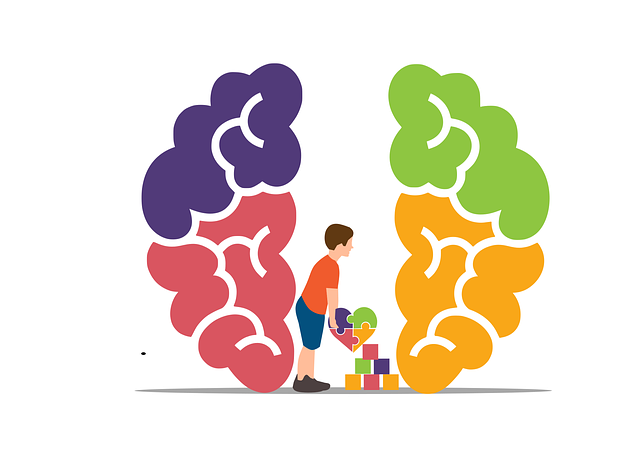Parker Mindfulness Therapy is a revolutionary approach to crisis intervention, combining structured strategies and mindfulness practices to offer immediate support for severe emotional distress or trauma. By fostering self-awareness and non-judgmental thinking through techniques like cognitive reframing and breathing exercises, individuals gain skills to manage emotions, reduce stress, and build resilience. This method enhances mental health professionals' self-care and empathetic responses, leading to improved risk management and positive client outcomes. Through open communication, active listening, and tailored strategies, Parker Mindfulness Therapy contributes to creating resilient communities.
In times of crisis, effective intervention can make a world of difference. This article provides a comprehensive guide to crisis intervention strategies, focusing on the power of Parker Mindfulness Therapy. We’ll explore its role in managing intense situations and offer practical tips for professionals. From understanding the core principles of mindfulness to implementing evidence-based techniques, this resource equips you with the tools to respond calmly and effectively during emergencies, ensuring positive outcomes for those in need.
- Understanding Crisis Intervention: A Brief Overview
- The Role of Parker Mindfulness Therapy in Crisis Management
- Practical Strategies for Effective Crisis Intervention
Understanding Crisis Intervention: A Brief Overview

Crisis intervention is a critical aspect of mental health support, focusing on providing immediate and effective assistance to individuals facing severe distress or traumatic events. It involves a structured yet flexible approach to help people navigate their emotions, manage stress, and develop coping strategies during challenging times. The primary goal is to stabilize the individual, ensure their safety, and foster resilience in the face of adversity.
Parker Mindfulness Therapy offers valuable insights into crisis intervention by emphasizing the power of mindfulness and self-awareness. This approach encourages individuals to focus on the present moment, acknowledge their feelings, and develop a non-judgmental mindset. Through various techniques, such as cognitive reframing and breathing exercises, clients can enhance their emotional regulation skills. Additionally, promoting self-esteem improvement and resilience building is integral to long-term mental health recovery, ensuring individuals are equipped to face future challenges with greater equanimity.
The Role of Parker Mindfulness Therapy in Crisis Management

In crisis management, Parker Mindfulness Therapy emerges as a powerful tool that empowers mental health professionals to effectively navigate challenging situations. This therapeutic approach, founded on mindfulness principles, equips practitioners with enhanced self-awareness and emotional regulation skills, enabling them to provide more focused and compassionate care during crises. By cultivating present-moment awareness, mental health professionals can better understand their clients’ experiences, thereby facilitating a more empathetic response.
Integrating Parker Mindfulness Therapy into crisis intervention strategies promotes not only effective risk management planning but also fosters self-care practices among mental health professionals. The therapy’s emphasis on non-judgmental acceptance and mindful breathing techniques helps practitioners manage their own stress and maintain resilience in high-pressure environments. This, in turn, enhances their ability to support clients in developing confidence boosting strategies for navigating crises, ultimately contributing to more positive outcomes.
Practical Strategies for Effective Crisis Intervention

In times of crisis, whether personal or communal, effective intervention strategies can make all the difference. A key approach, as espoused by Parker Mindfulness Therapy, is to create a safe and supportive environment that fosters open communication. This involves active listening, empathy, and non-judgmental attitudes, which help individuals feel heard and understood during their time of distress. Encouraging clients to express their emotions freely can lead to a better understanding of the crisis and its underlying causes.
Additionally, crisis intervention should incorporate practical strategies tailored to the situation. For instance, in healthcare settings, Burnout Prevention Strategies for Healthcare Providers emphasize the importance of self-care and setting boundaries. Community Outreach Program Implementation plays a vital role in identifying at-risk groups and providing early interventions. Similarly, Risk Management Planning for Mental Health Professionals ensures that practitioners are equipped with tools to handle crises effectively while maintaining their own well-being. These comprehensive approaches not only aid individuals in crisis but also contribute to building resilient communities.
In light of the above discussions, it’s clear that crisis intervention strategies, especially those informed by Parker Mindfulness Therapy, play a pivotal role in managing and mitigating intense emotional experiences. By combining mindfulness techniques with effective communication, professionals can provide tailored support during crises. This article has explored these strategies, offering practical insights for individuals seeking to enhance their crisis management skills. Embracing mindfulness as a core component can revolutionize how we navigate and resolve challenging situations, fostering resilience and healing in individuals and communities alike.









